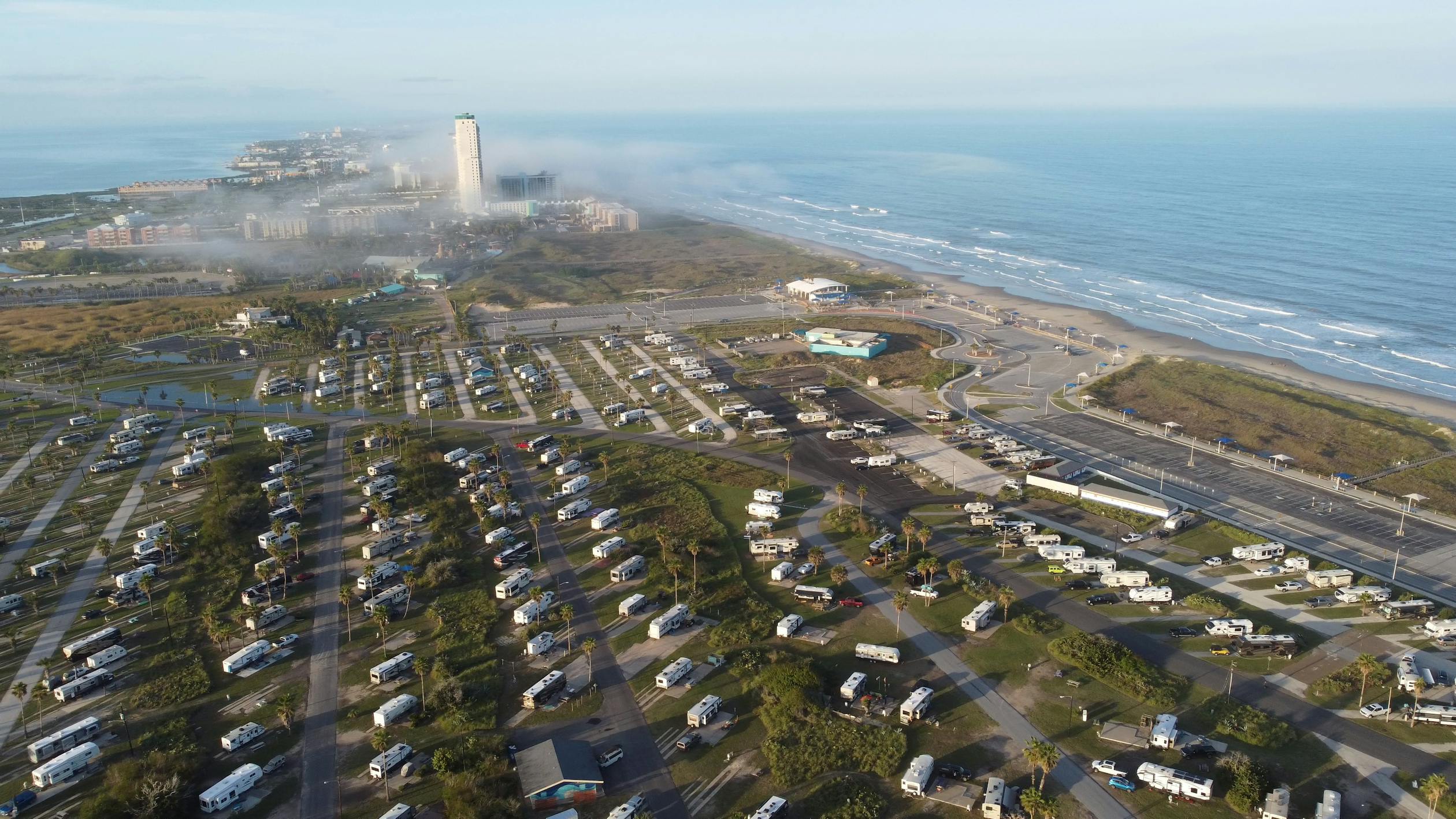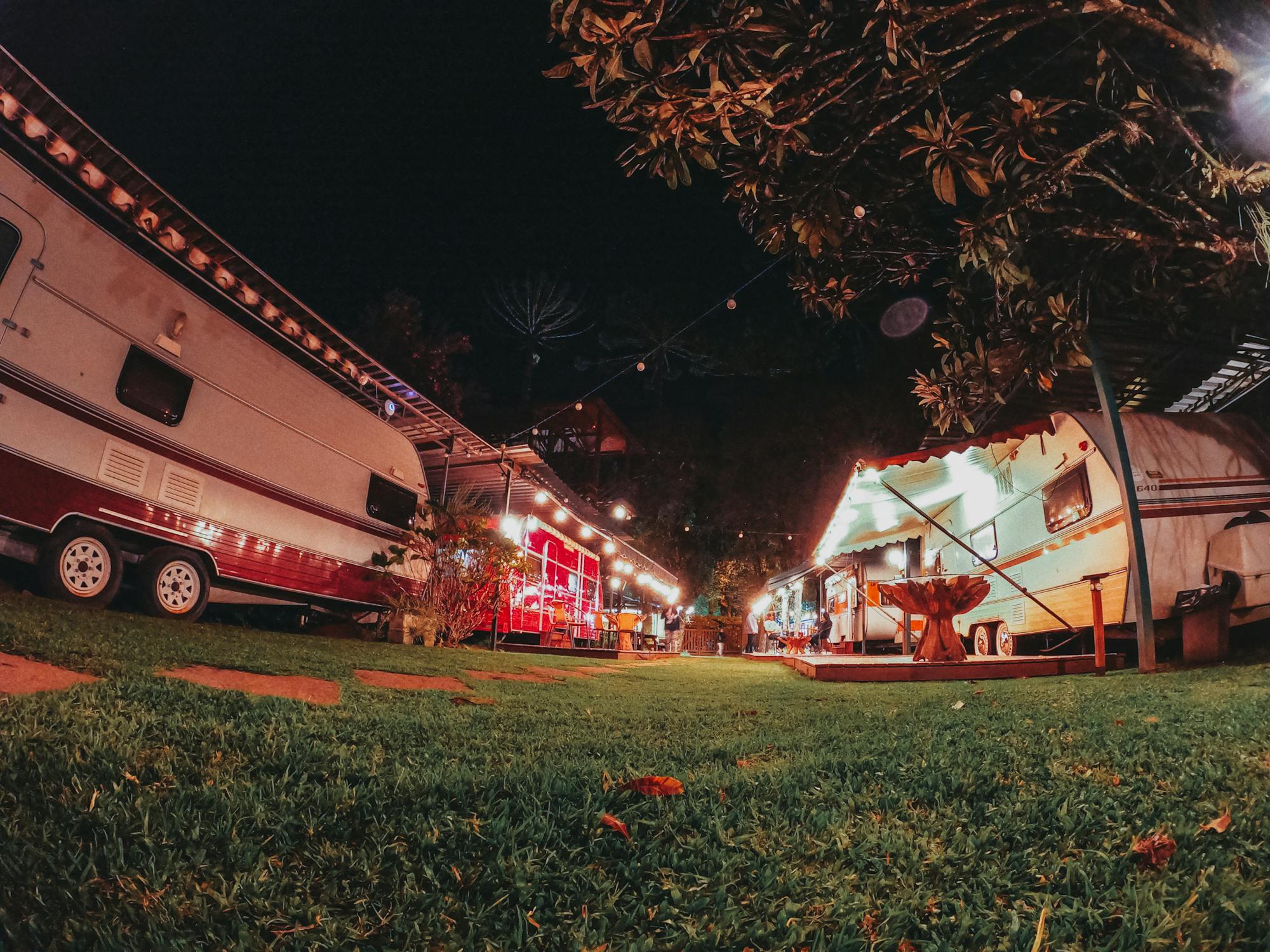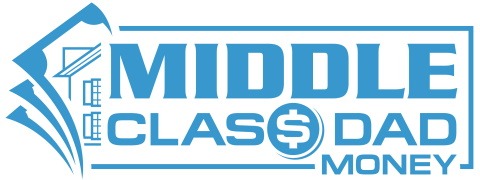Have you ever considered living in a trailer park? You might be surprised at the unique lifestyle it offers! But there can be a social stigma attached when you tell people. So is it bad to live in a trailer park?
It is not necessarily bad to live in a mobile home park, but the social stigma associated with trailer park living exists. Mobile homes generally depreciate in value faster than traditional homes. However, living in a trailer park can offer cost savings, as monthly expenses are often lower.
Ultimately, the decision to live in a trailer park depends on individual preferences, financial considerations, and the specific circumstances of each situation.
In recent years, trailer parks have evolved into vibrant communities with a strong sense of camaraderie, privacy, independence, and affordable living.
This comprehensive article delves into the advantages and disadvantages of residing in a trailer park, dispels prevalent misconceptions, and assists you in determining if the benefits outweigh any potential drawbacks.
Now, let’s take a deep dive into the world of trailer parks and explore what it’s really like to live there. We’ll uncover the truth and uncover the real deal. Get ready for an eye-opening adventure!
Short Summary
- Discover the joys of trailer park living – it’s affordable, family-friendly, and full of amenities!
- Uncover safety & stability concerns like vulnerability to natural disasters & construction quality.
- Evaluate your needs and research parks for a perfect fit that’ll boost your quality of life!
The Myths and Realities of Trailer Park Living

The media and popular culture have perpetuated numerous myths and stereotypes about trailer park living that are far from the truth. In reality, mobile home parks offer a unique and appealing alternative to traditional housing options.
With a strong sense of community, privacy, independence, and fantastic amenities and perks, living in a mobile home park can be a perfect choice for many people looking for affordable housing options.
So, are you ready to discover the exciting world of trailer park living? Let’s debunk some myths and reveal the reality!
Misconceptions Debunked
One of the biggest misconceptions about trailer parks is that they are all run-down, dangerous, and filled with unsavory characters. This couldn’t be further from the truth!
These days, lots of mobile home communities are nicely maintained, safe, and great for families. They offer a top-notch quality of life that’s hard to beat.
Mobile homes have come a long way in terms of design and construction, with many now boasting modern features and amenities that rival those found in traditional homes.
So, it’s time to let go of those outdated stereotypes and embrace the exciting reality of mobile home living!
There’s a misconception that mobile homes are only temporary living spaces, a last option for folks who can’t afford a regular house. But the truth is, mobile homes can be cozy, comfortable, and even a long-term housing solution for many.
This couldn’t be more wrong!
Actually, a lot of folks who own mobile homes opt to make it their long-term residence. They’re drawn to the affordable price, minimal upkeep, and one-of-a-kind way of life it brings. It’s a choice that many find suits them perfectly for the long haul.
Yet others live in trailer parks in recreational vehicles which allow them to move across the United States seasonally or as they please.
Mobile homes are built to last, and with proper care and maintenance, they can provide a comfortable and stable living environment for many years. So don’t let these misconceptions hold you back from considering a move to a trailer park!
The Reality

The reality of trailer park living is a far cry from the negative stereotypes often portrayed in the media.
A mobile home community offers a unique blend of affordability, independence, and a strong sense of community that is hard to find in traditional housing options.
With monthly lot rental fees in the range of $200-$300 across the US and mobile homes being much more affordable compared to traditional houses, it’s no surprise that many folks are attracted to this budget-friendly alternative. It’s a smart choice for those seeking a cost-effective option that doesn’t break the bank.
Trailer parks also come with a range of amenities and benefits, such as swimming pools, playgrounds, clubhouses, and community events. They offer a diverse array of facilities and activities to enhance your living experience and create a sense of community.
Many parks are family-oriented, with a focus on creating a safe and supportive environment for all residents. 55+ mobile home parks offer a peaceful and quiet setting for senior citizens looking to downsize and enjoy their golden years.
With such a diverse range of communities and lifestyles available within mobile home parks, there truly is something for everyone!
Financial Considerations

Choosing to live in a trailer park can be a smart move for folks looking to be financially savvy. With lower upfront costs, less money spent on maintenance, and more affordable monthly expenses, it’s a practical and appealing alternative to traditional homeownership. It’s a great way to stretch your budget and make your hard-earned money go further.
However, it’s also essential to be aware of potential financing challenges and the depreciation of property value over time.
Now, let’s dig deeper into these financial aspects so you can get a clear picture of whether living in a trailer park is the right choice for you. We’ll break it down and provide all the details you need to make an informed decision.
After all, understanding the financial side of things is crucial when it comes to finding the perfect home that fits your lifestyle and budget. So, let’s dive in and unravel the money matters of trailer park living!
Affordability
One big perk of living in a mobile home is how budget-friendly it can be. It’s all about the affordability factor. Mobile home living often comes with a lower price tag, making it a smart choice for those looking to save some serious dough. So, if you’re keen on finding a wallet-friendly housing option that doesn’t break the bank, mobile home living might just be the perfect fit for you. Say hello to a cozy home without emptying your wallet!
In addition to the lower cost of the mobile home itself, lot rent in most mobile home parks is considerably cheaper than the property taxes and maintenance expenses associated with traditional homeownership.
However, it’s essential to consider other factors that can impact the overall affordability of living in a mobile home park. Those things include:
- the location of the park
- the size and age of the mobile home
- the amenities and services provided by the park
Researching these factors and carefully considering your budget can help you determine if mobile home living is the affordable housing option you’ve been searching for.
Financing Challenges
Financing a mobile home can be more challenging than financing a traditional home, as many lenders have doubts about the value of mobile homes and their potential for depreciation.
Traditional mortgages are not an option for mobile homeowners, but chattel loans are available as an alternative. Chattel loans are a type of personal property loan. They usually have shorter repayment terms and higher interest rates compared to regular mortgages.
It’s crucial to shop around and compare different financing options to find the best fit for your needs. While chattel loans can be more expensive in terms of interest rates, the lower overall cost of mobile homes can still make them an affordable option for many buyers.
Property Value Depreciation
One potential downside of mobile home ownership is the depreciation of property value over time. Mobile homes are considered personal property rather than real property, which means they typically do not appreciate in value like traditional stick-built homes.
However, with proper maintenance, mobile homes can maintain their value and even appreciate in some cases, especially if the homeowner owns the land on which the mobile home is situated.
It’s essential to weigh the potential depreciation of property value against the other financial benefits of mobile home living, such as lower upfront costs and reduced monthly expenses. For many, the overall affordability of mobile home living may outweigh the potential drawbacks of property value depreciation.
Trailer Park Lifestyle Benefits

Trailer park living offers several unique lifestyle benefits that can make it an attractive option for many individuals and families. A strong sense of community, privacy, independence, and access to amenities and perks are just a few of the advantages that can come with living in a mobile home park.
Let’s explore the pros of mobile home living in greater detail.
Strong Sense of Community
One of the most appealing aspects of trailer park living is the strong sense of community that it fosters.
With shared amenities and common spaces, residents can easily get to know their neighbors and form lasting friendships. Trailer parks often host community events and activities, providing residents with opportunities to socialize and bond with one another.
This strong sense of community can be particularly beneficial for families with children, as it creates a supportive and nurturing environment where kids can grow and thrive. Similarly, senior citizens living in age-restricted parks can benefit from the company and camaraderie of their peers.
No matter your stage in life, trailer park living can offer a warm and welcoming community where you can truly feel at home.
Privacy and Independence
In addition to fostering a strong sense of community, trailer park living also offers a level of privacy and independence that can be difficult to find in traditional housing options.
Unlike apartment complexes or townhomes, mobile homes have no shared walls, providing residents with a greater sense of privacy and freedom from noise disturbances. Additionally, most mobile homes come with their own yard space, allowing residents to enjoy outdoor activities and gardening without feeling cramped or confined.
This combination of community and privacy can be particularly appealing to those who value their independence but also crave the support and connection that comes with living in a close-knit community.
Whether you’re a single mom looking for a family-friendly environment or a retired couple seeking a peaceful place to enjoy your golden years, trailer park living can provide the perfect balance of community and independence.
Amenities and Perks
Living in a trailer park also comes with its share of amenities and perks that can enhance your daily life. Many parks offer facilities such as swimming pools, playgrounds, and clubhouses, providing residents with convenient access to leisure and recreational activities.
Some parks also offer services like lawn care and recycling pickup, making maintenance and upkeep a breeze. These amenities and perks can add significant value to your living experience, making trailer park life more enjoyable and convenient.
And many are in close proximity to shopping centers and even beaches in some cases.
Before choosing a trailer park, it’s essential to research the amenities and perks available in each park to find one that best suits your needs and lifestyle preferences.
Potential Downsides of Living in a Trailer Park

While there are many fantastic benefits to trailer park living, it’s crucial to acknowledge the potential downsides and challenges as well. Limited space, park rules and restrictions, and social stigma are some of the potential issues that individuals and families may face when choosing to live in a trailer park.
Let’s explore the cons of mobile home living in greater detail.
Limited Space
One of the most notable downsides of living in a mobile home is the limited space.
On average, mobile homes are approximately 20% smaller by square foot than traditional homes, making them less spacious both inside and out. While this smaller footprint can be a benefit for those looking to downsize or simplify their lives, it can also be a challenge for families with growing children or those who require more space for hobbies and possessions.
It’s essential to carefully consider your space needs and determine if a mobile home can adequately accommodate your lifestyle. If you value smaller square feet, more manageable living space, then trailer park living may be an ideal choice for you.
Park Rules and Restrictions
Another potential downside of living in a trailer park is the park rules and restrictions that residents must adhere to. These rules can vary from park to park and may include restrictions on pets, noise, fencing, and parking. While these rules are in place to maintain a safe and pleasant living environment for all residents, they can sometimes feel restrictive and may limit your freedom and independence.
It’s essential to familiarize yourself with the specific rules and restrictions of any trailer park you’re considering moving to and determine if you’re comfortable with the level of regulation. If you value a more flexible and unrestricted living situation, trailer park living may not be the best fit for you.
Social Stigma
Despite the many positive aspects of trailer park living, there is still a lingering social stigma associated with it.
Some people may view mobile home parks as a less desirable housing option and unfairly judge those who choose to live in them. This stigma can lead to feelings of shame or embarrassment and may even impact your relationships or job opportunities.
However, it’s important to remember that this stigma is gradually decreasing as more people recognize the benefits and appeal of mobile home living. By focusing on the advantages and positive aspects of trailer park life, you can help challenge and change these outdated perceptions and embrace the unique lifestyle it offers.
Safety and Stability Concerns of Living in a Trailer Park

Safety and stability are important factors to consider when choosing a place to live, and trailer parks are no exception. While many mobile home parks are well-maintained and secure communities, there are still some safety and stability concerns to be aware of, such as vulnerability to natural disasters, crime rates, and construction quality.
Exploring these considerations in detail can shed light on their potential influence when considering residency in a trailer park.
Vulnerability to Natural Disasters
Due to their temporary foundations and lightweight construction, mobile homes are more vulnerable to damage during natural disasters such as hurricanes, tornadoes, floods, and earthquakes. This increased vulnerability can be a significant concern for those living in areas prone to severe weather events or other natural hazards.
It’s essential to take appropriate precautions and prepare for potential natural disasters when living in a mobile home. This may include securing your home with tie-downs, anchoring it to a permanent foundation, or having a designated evacuation plan in place.
By being prepared and proactive, you can help mitigate some of the risks associated with living in a mobile home during a natural disaster.
Construction Quality
While the construction quality of mobile homes has improved significantly over the years, it’s still crucial to research the specific standards and materials used in the construction of your potential mobile home. Poor construction quality can lead to issues such as water damage, mold, and structural instability.
Before purchasing a mobile home, it’s essential to thoroughly inspect the home and research the manufacturer’s reputation and construction standards. Ensuring that your mobile home is well-built and meets the necessary safety and quality standards can provide you with peace of mind and help protect your investment.
Sex Offenders and Drug Dealers
Sex offenders and drug dealers are two of the stereotypes that sometimes accompany trailer park living. And that’s largely due to the low cost of living and the ability to better fly under the radar compared to a more traditional home neighborhood.
But it’s important to note that the prevalence of sex offenders and drug dealers can vary widely among different mobile home parks.
You can also search for registered sex offenders nationwide on this website (not a paid endorsement) – https://www.familywatchdog.us/
To avoid parks with a higher likelihood of such residents, consider researching the park’s reputation, reading reviews, and talking to current residents.
Additionally, working with a reputable real estate agent or consulting local law enforcement may provide valuable insights.
Keep in mind that parks that conduct background checks and thorough screening procedures also contribute to a safer living environment. So ask if the park does that before signing an agreement.
Crime in Trailer Parks
Crime rates can vary between mobile home parks and traditional home neighborhoods, and it’s important to consider factors such as location, security measures, and management practices.
To avoid parks with a higher likelihood of criminal activity, research the park’s reputation, speak with current residents, and consult local law enforcement for insights. Look for parks with proactive security measures, such as gated entrances, surveillance cameras, and on-site management.
It’s also advisable to prioritize personal safety by using common-sense precautions like locking doors and windows, getting to know your neighbors, and reporting any suspicious activity. Remember, crime can occur in any neighborhood, so it’s crucial to stay vigilant and take appropriate measures to protect yourself and your property.
Is Living in a Trailer Park Right for You?
Deciding whether living in a trailer park is right for you requires careful consideration of various factors, such as your budget, lifestyle preferences, and specific needs. It’s essential to evaluate these factors and research different trailer parks to find the one that best suits your unique situation.
In this section, we’ll provide some guidance on how to evaluate your needs and research trailer parks to help you make an informed decision.
Evaluating Your Needs
When considering whether trailer park living is right for you, it’s essential to evaluate your needs and lifestyle preferences. Factors such as availability of schools, amenities, research, recent developments/quality of land, age of residents, management, the surrounding community, park rules, and the potential for the depreciation of mobile homes should all be taken into account.
Think about your current living situation and how it compares to what a trailer park can offer.
Are you looking for a more affordable housing option? Do you crave a strong sense of community and shared experiences? Are you seeking a simpler, more manageable lifestyle? By assessing your needs and priorities, you can determine if trailer park living aligns with your desired lifestyle.
Researching Trailer Parks
Once you’ve evaluated your needs, it’s essential to research different trailer parks to find the one that best meets your requirements. Look for information on the park’s regulations, management, and amenities, as well as the experiences of current and former residents.
You can use websites like MobileHomeParkStore.com or search for mobile home parks in specific locations to find information on the local market and competitors. Additionally, consider attending seminars or reading books on mobile home park investing to gain a deeper understanding of what to look for when researching trailer parks.
By conducting thorough research, you can make an informed decision about which trailer park is the best fit for you and your family.
Summary
In conclusion, living in a trailer park can offer a unique and appealing alternative to traditional housing options.
With a strong sense of community, privacy, independence, and access to fantastic amenities and perks, it’s no wonder that many people are drawn to this exciting lifestyle. However, it’s essential to carefully weigh the potential downsides and challenges, such as limited space, park rules and restrictions, and social stigma, before committing to live in a mobile home park.
By evaluating your needs, researching different trailer parks, and considering the various financial, lifestyle, and safety factors, you can make an informed decision about whether trailer park living is the right choice for you.
So, why not give it a try and discover the unique and fulfilling lifestyle that awaits you in a trailer park?
Frequently Asked Questions
What are the negatives of living in a trailer park?
Living in a trailer park can be difficult since many parks have strict rules regarding visitors, parking, and lawn care. Not following those rules can result in eviction, forcing the tenant to sell their home or hire someone to move it.
Additionally, mobile homes depreciate in value, meaning investments are not protected.
Why do people live in a trailer park?
People live in a manufactured home community for a variety of reasons, including lower utility and maintenance costs, lower taxes, and affordability compared to a house. They might not have the money for a down payment or have credit issues, but still need an affordable place to stay.
In many cases, the cost of living in a mobile home park is much less than living in a traditional home or even an apartment building.
What does it mean to live in a trailer park?
Living in a trailer park means having the convenience of a stable and affordable housing situation, while also having the flexibility to pick up and move if the need arises.
It’s an exciting way to experience many places without sacrificing a sense of home and community.
Image by James Burke from Pixabay
